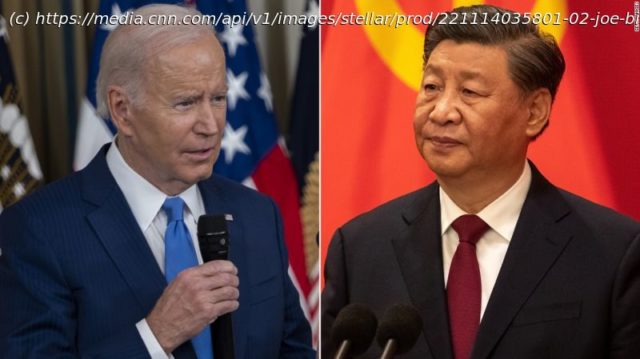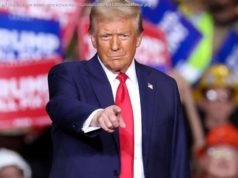When President Joe Biden took office in January 2021, there were expectations on both sides of the Pacific that he would back away from the trade war his predecessor started with China nearly three years earlier.
When President Joe Biden took office in January 2021, there were expectations on both sides of the Pacific that he would back away from the trade war his predecessor started with China nearly three years earlier.
Frustrated by China’s huge trade surplus and accusing it of stealing US intellectual property, former President Donald Trump slapped tariffs on $50 billion of Chinese goods in June 2018. Beijing countered with its own tariffs, and the spiral continued until a so-called truce was agreed in 2020.
Instead of rolling back those measures, Biden has quietly intensified the trade conflict. In October, his administration imposed sweeping new curbs designed to curtail China’s access to technology critical to its growing military power.
Against this backdrop of rising competition, and amid fears of a global recession, the leaders of the world’s two biggest economies will meet on the sidelines of the G20 summit in Bali, Indonesia on Monday.
Speaking with reporters in Bali, US Treasury Secretary Janet Yellen said the meeting was intended to stabilize the relationship and expressed hopes that it would lay the groundwork for bilateral economic engagement.
The stakes are high for both sides, as well as the rest of the world. China, with its nearly $18 trillion economy, has in recent years been the main driver of global growth. But Covid lockdowns and a real estate crisis have slammed the brakes on its expansion this year.
While expectations for the meeting are low, it’s crucial for the two sides to re-engage, Mattie Bekink, the Shanghai-based China director of the Economist Intelligence Corporate Network, told CNN Business.
For decades, regular lines of communications existed between US officials and their Chinese counterparts, but most of those avenues were cut off after House Speaker Nancy Pelosi visited Taiwan in July.
“It’s important for heads of state to speak directly,” she said. “There is a lack of trust in this relationship. If Xi and Biden send the signal that it’s time to resume communications, hopefully this will trickle down to the lower levels.






